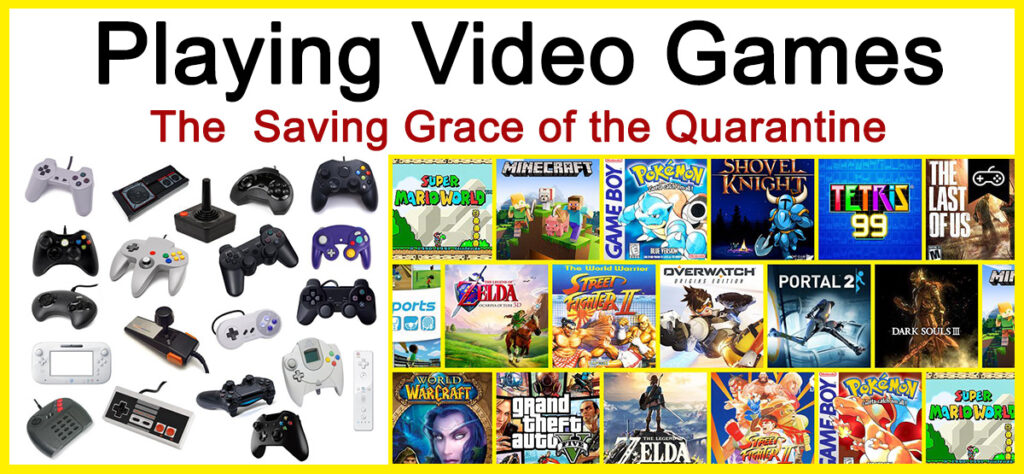Video games may have been the saving grace of the COVID quarantine. As schools closed and businesses transitioned to remote work, many parents found themselves relaxing rules in order to keep their children entertained while they struggled to maintain their work schedules. Is that a bad thing? Well, not necessarily.
There are, according to the American Psychological Association, numerous cognitive benefits of playing video games, including improved spatial navigation, reasoning, memory and perceptions. While it is up to a parent to monitor the content of their children’s video games, they can rest assured that the games themselves are powerful education tools because they force players to both pay close attention to what is on the screen and control the motions. By playing video games, children also develop other important life skills, including resilience (because games are hard and failure is inevitable) and the ability to problem solve and make course corrections with just-in-time feedback. Additionally, the social nature of newer video games enables children to interact in a community, empowering them to develop social skills that will serve them well into adulthood.
Are video games just for children? Nope. The APA reported that playing video games benefits people throughout the lifespan. Adults can improve dexterity, cognitive function, spatial skills, and reflex time by engaging in video game play. PCMag reported in June that people, both children and adults, have been playing video games more often in sessions lasting up to or longer than four hours a day. While 34% of the respondents reported playing on both home consoles like PlayStation and Xbox One, nearly an equal percentage of respondents reported using a smartphone or tablet.
The rising popularity of free-to-play mobile games, cheap portable hybrid options like the Switch, and even high-end game streaming on low-end hardware could make pricey new iterations of PlayStation and Xbox seem less appealing. And, considering the upcoming Playstation 5 and Xbox X will be retailing for around $500, that could be a worrisome proposition for retailers. While the cost of these consoles in relation to median household income have remained relatively stable, the state of the economy during these unprecedented times may make affordability a challenge.
Although unemployment rates in the United States are falling as firms begin to rehire their staff, overall unemployment remains higher than it was prior to the quarantine. And, those who are still working are finding themselves underemployed as workers work less hours than they want or are underutilized because of the pandemic.
So, if home consoles are costing significantly more than online or mobile gaming, how can retailers convince consumers to spend? The good news is that gamers generally have an undying loyalty toward their console of choice, so it is likely that they will want to upgrade when new consoles come out. Unfortunately, traditional alternatives to cash purchases, such as credit cards, layaway, or traditional financing are not ideal for retailers, as they require high fees or are not cost effective.
However, a lease-to-own program may be a good alternative. Customers with an income can take home their console and pay it off over time while retailers get paid immediately and can invest the money back into their business.
To learn more about how offering lease-to-own products can benefit your business, visit https://joethefinanceguy.com/
Sources
https://www.apa.org/monitor/2014/02/video-game
https://www.apa.org/news/press/releases/2008/08/video-games
https://arstechnica.com/gaming/2020/02/is-the-us-market-ready-to-embrace-a-500-game-console/
https://www.bbc.com/news/business-54029361



Pingback: Unsung Hero: More Than Just A Video Game | PressRelease.cc